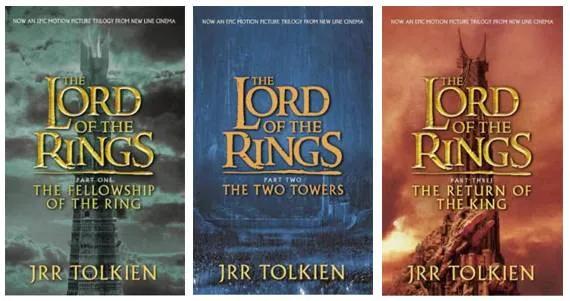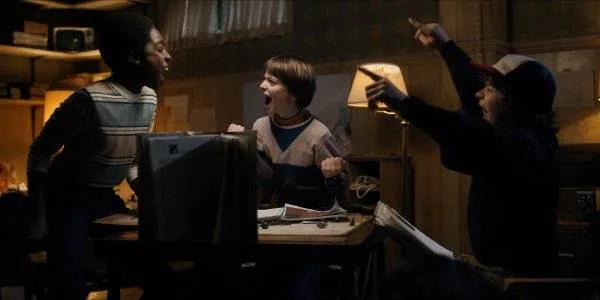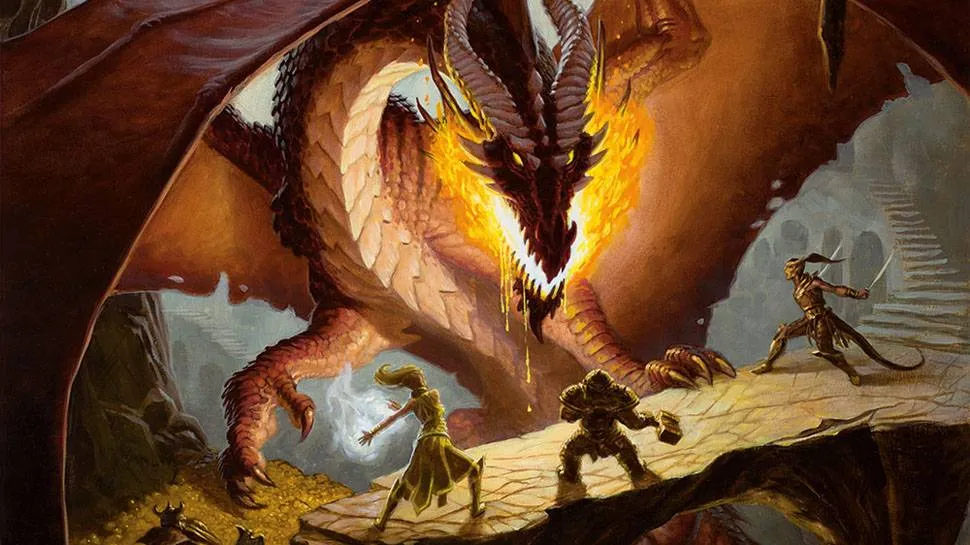
4 Reasons To Get Your Kids to Play Dungeons and Dragons
This content contains affiliate links. When you buy through these links, we may earn an affiliate commission.
Remember when people said Dungeons & Dragons were a gateway drug into satanism and juvenile delinquency?
Well, they were half-right; D&D is a gateway drug. Only, it’s a gateway drug into things all parents should wish for their kids.
I present; four things Dungeons and Dragons can give a child.
 And then there are all the books that take place within the D&D setting itself, of which my personal favorite are the first three books in the Drizzt Do’Urden series.
From there, anything that even remotely touches on fantasy. A love of books, for life, comes with the first night of playing D&D. It’s a package deal.
And then there are all the books that take place within the D&D setting itself, of which my personal favorite are the first three books in the Drizzt Do’Urden series.
From there, anything that even remotely touches on fantasy. A love of books, for life, comes with the first night of playing D&D. It’s a package deal.
 Picture the first scene from Netflix’s recent hit show Stranger Things, where the friends are playing D&D. That is actually pretty close to what it’s like playing.
You meet new people and make friends, who share an interest in a thing you don’t generally talk about in polite society. But you know.
You are part of a club.
There is no board game that comes close to the fun you can have playing Dungeons and Dragons.
Picture the first scene from Netflix’s recent hit show Stranger Things, where the friends are playing D&D. That is actually pretty close to what it’s like playing.
You meet new people and make friends, who share an interest in a thing you don’t generally talk about in polite society. But you know.
You are part of a club.
There is no board game that comes close to the fun you can have playing Dungeons and Dragons.
 So a night of playing involves quite a bit of quick arithmetic and statistics, as part of playing a fun game with friends.
And you get good at it pretty fast.
So a night of playing involves quite a bit of quick arithmetic and statistics, as part of playing a fun game with friends.
And you get good at it pretty fast.
1. A life-long love of books
Oh yes. The game itself is massively fun, and when you can’t play you turn to the next-best thing; books that take place in the same world. For starters, there is no playing D&D if you haven’t read The Lord of the Rings. And then you have a choice of hundreds of epic fantasies; The Wheel of Time series, The Game of Thrones books, The Shannara Chronicles, The Earthsea books. And then there are all the books that take place within the D&D setting itself, of which my personal favorite are the first three books in the Drizzt Do’Urden series.
From there, anything that even remotely touches on fantasy. A love of books, for life, comes with the first night of playing D&D. It’s a package deal.
And then there are all the books that take place within the D&D setting itself, of which my personal favorite are the first three books in the Drizzt Do’Urden series.
From there, anything that even remotely touches on fantasy. A love of books, for life, comes with the first night of playing D&D. It’s a package deal.
2. Friends for life
 Picture the first scene from Netflix’s recent hit show Stranger Things, where the friends are playing D&D. That is actually pretty close to what it’s like playing.
You meet new people and make friends, who share an interest in a thing you don’t generally talk about in polite society. But you know.
You are part of a club.
There is no board game that comes close to the fun you can have playing Dungeons and Dragons.
Picture the first scene from Netflix’s recent hit show Stranger Things, where the friends are playing D&D. That is actually pretty close to what it’s like playing.
You meet new people and make friends, who share an interest in a thing you don’t generally talk about in polite society. But you know.
You are part of a club.
There is no board game that comes close to the fun you can have playing Dungeons and Dragons.
3. A reason to learn math
Playing Dungeons and Dragons (or any other role-playing game) involves creating and playing characters who have certain abilities. These abilities are reflected in scores running from 0 to 20. Then you may need to calculate a bonus from your ability score when added to the result of a eight-sided dice thrown and the probability that you will achieve what you are trying to do weighed against taking another approach. So a night of playing involves quite a bit of quick arithmetic and statistics, as part of playing a fun game with friends.
And you get good at it pretty fast.
So a night of playing involves quite a bit of quick arithmetic and statistics, as part of playing a fun game with friends.
And you get good at it pretty fast.



